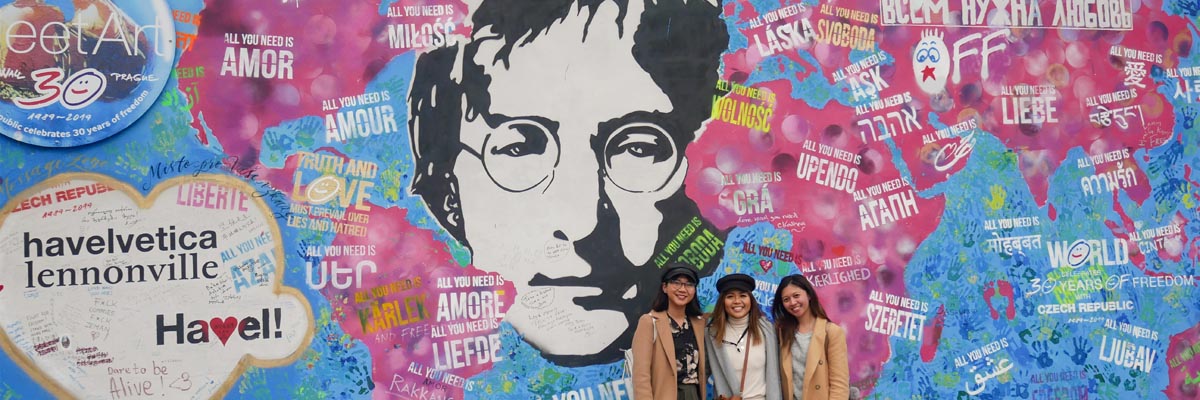Prague Courses – 2025 January Session
Courses
You will enroll in three credits during the January term. Courses are intensive and meet for three hours each day plus nightly homework assignments. Courses are small and have a maximum enrollment of 15 students.
Course availability is contingent on student enrollment and is subject to change.
Click the course title to view course details and description.
European Studies
- January SessionArt English Film 300-level 3 credits Taught in English
The course will offer intensive insight into the Czech cinema. The aim is to show different faces of Czech filmmaking, i.e. the variety of approaches toward the film media. Alongside the classic Czech movies, the students will have a chance to watch and analyze experimental films, the documentary, and poetic film.
- January SessionArchitecture Art 300-level 3 credits Taught in English
The course is a survey of styles, trends and movements focusing on the fine arts and architecture in Prague and the Czech Republic against the background of European influences. It covers the Medieval, Renaissance, and Baroque periods, up to Modernism and the Contemporary art scene. Special attention will be paid to the unique characteristics and developments of art (e.g. Prague Castle, Baroque churches, Czech cubism) and to the most significant periods in Czech history (era of Charles IV, Rudolf II). Tours, field trips and visits to museums and galleries are a substantial part of the course.
- January Session400-level 3 credits Taught in English
In his eminent work Postwar, historian Tony Judt described Europe after WWII as consciously building a new establishment not reminiscent of the prewar era. He succeeded in explaining the Communist governments in East-Central Europe as part of the story. Inspired by the book, this course is an invitation into an era starting with the fall of Berlin in May 1945, yet not stopping – as Judt did - in 1989. The present interpretation of the history of Central European societies will also include their post-Communist transformations in the 1990s and take their perspective to look at more recent challenges that the European Union and the global establishment are facing.
The objective of the course is to help students enhance their experience in the Czech Republic by becoming aware of the contradictory post-1945 era in the region’s history. Each class will include an introductory lecture followed by interactive projects, discussions of the readings, film screenings, field trips, and debates with guest speakers etc.
Prerequisite: introductory coursework in college-level history, or equivalent
- January SessionEnvironmental Science Political Science 300-level 3 credits Taught in English
Sustainable Development has become a commonplace term and a major reference point in global, national, and municipal politics of most countries, and increasingly also in the actions and policies of various political leaders. The overarching 2015 global framework of Sustainable Development Goals (SDGs) required UN member states, international organizations, as well as NGOs, businesses, cities and other stakeholders to align their activities/policies along 17 broad areas, ranging from poverty, inequalities to environment, peace, and good governance.
In this course, we will first explore the theories and concepts that support this global development framework. In the first block of the course, we will discuss links between sustainability and quality of life, learn about different ways to measure progress and discuss the ways in which the SDG is different in comparison to previous global development projects. In the second block, we will analyze, based on selected issues of poverty and migration, the role of different actors, the challenges they face, and the types of solutions they offer. The third block will be devoted to the highly important topic of our day – climate change. After establishing background, we will examine strategies offered by businesses, as well as by local communities, to mitigate the impacts and adapt to the new conditions. We will conclude the course with presentations of field projects and discussions synthesizing course themes and major take-aways.
Individual classes combine traditional lecture with interactive debates and workshops, screenings of documentaries, case studies, and guest lectures. As part of this course, students will be invited to visit concrete organization (be it a business, an NGO or a public organization) that is designed on the principles of sustainable development and explore its activities and contributions. At the end of the course, students will have the opportunity to share and discuss their findings.
To request a course syllabus: syllabus@usac.edu

